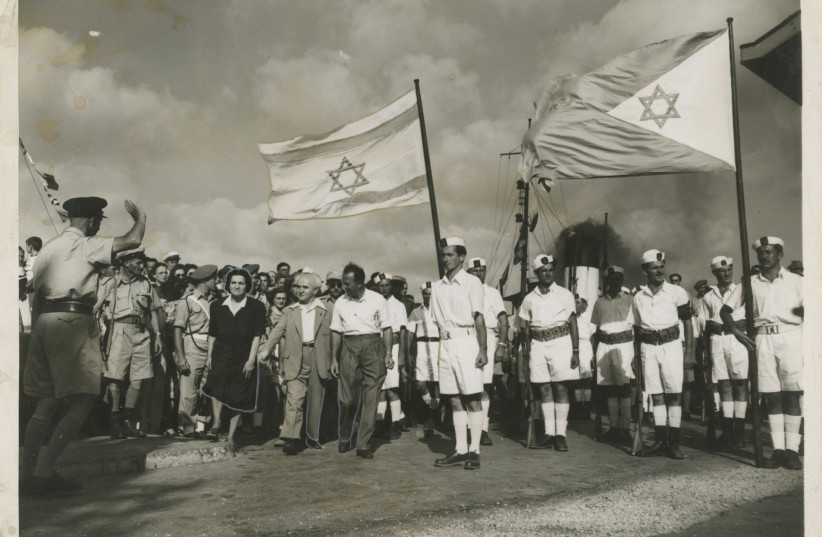November 29 marks 74 years since the United Nations passed resolution 181, the partition plan for Mandatory Palestine.
The plan proposed partitioning Mandatory Palestine at the end of the British Mandate into two states, one Jewish and one Arab, with Jerusalem being controlled by an international regime.
Internationally, the plan saw support from the US, France, Canada, Liberia, Sweden and Norway. However, it also faced opposition from several other countries like India.
The plan was accepted by many Jews, albeit some with reluctance due to territorial concessions. But ultimately, many Jews both in Mandatory Palestine and abroad were satisfied with it.
Arab leaders widely rejected the plan, however. They had announced they would refuse to be bound by this decision, which they claimed was made under duress, and vocally expressed their opposition to what they declared was a violation of self-determination.

Ultimately, the resolution was not carried out and Arab countries attacked Israel. This in turn led to the 1948 War of Independence, which saw Israel defeat its Arab neighbors and achieve independent statehood.
In later years, the date would also become known as the annual International Day of Solidarity with the Palestinian People, a United Nations-organized event observed since 1978.
Created as a result of UN General Assembly resolution 32/40 B in 1977, this specific date was chosen in memory of the partition plan.
This day of solidarity is still recognized and observed by events, typically held at the UN headquarters in New York and offices in Vienna, Nairobi and Geneva, as well as other places.
Many high-ranking UN officials, NGOs and other public figures tend to make statements regarding Palestine and the ongoing Israeli-Palestinian conflict in special meetings at these events. Indeed, as noted by the UN's website, it is also the day when the UN General Assembly holds its annual debate about Palestine.
The 2020 meeting, held virtually due to COVID-19, saw messages of solidarity given from 20 heads of state, four heads of government, 10 foreign ministers, five governments and five different international bodies.
Others observe the day with cultural events and with local events and activities. In fact, in 2005, as part of resolution 60/37, the General Assembly asked that an annual Palestinian rights exhibit or cultural event be held on the International Day of Solidarity with the Palestinian People in cooperation with the Permanent Observer Mission of Palestine to the UN.
In 2020, the UN held a virtual art exhibit titled The Writing is on the Wall: Annexation Past and Present, which features artwork created on the border wall in the West Bank.
An event will also be held this year, with the UN announcing that the Committee on the Exercise of the Inalienable Rights of the Palestinian People (CEIRPP) will hold a special meeting where UN member states will express solidarity with Palestinians via messages from various heads of states and governments.
This meeting will take place from 10:00 a.m. to 12:30 p.m. EST (5:00 p.m. to 7:30 p.m. Israel time) and will be livestreamed on UN WebTV.
Those giving statements at the event will include Palestinian Authority President Mahmoud Abbas, Amnesty International Secretary-General Agnès Callamard and Palestinian activist and journalist from Sheikh Jarrah Mohammed El-Kurd.
